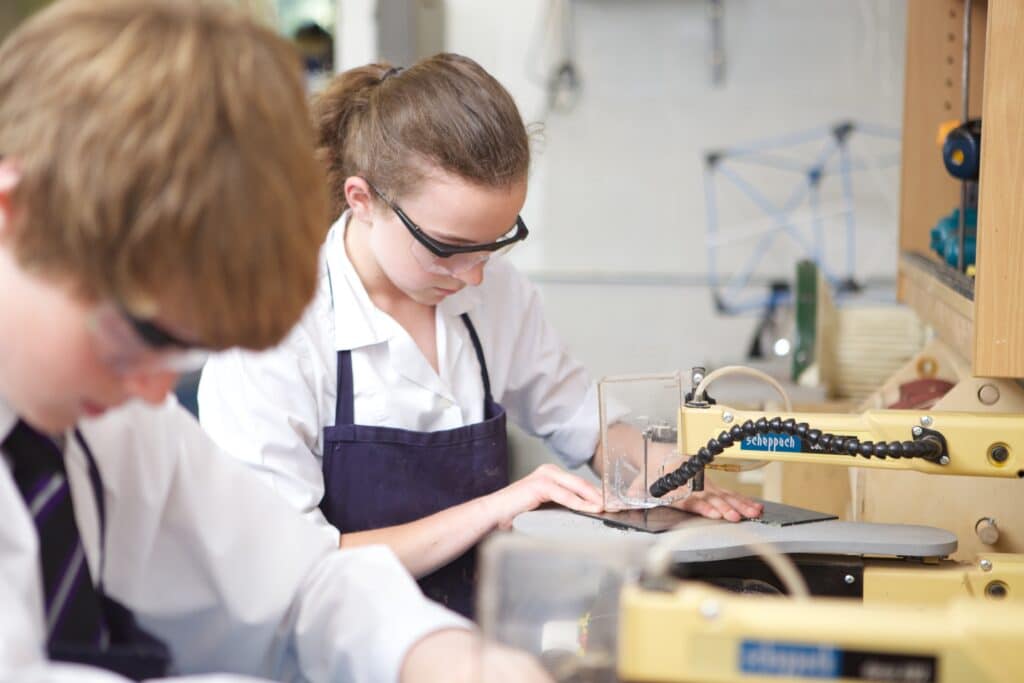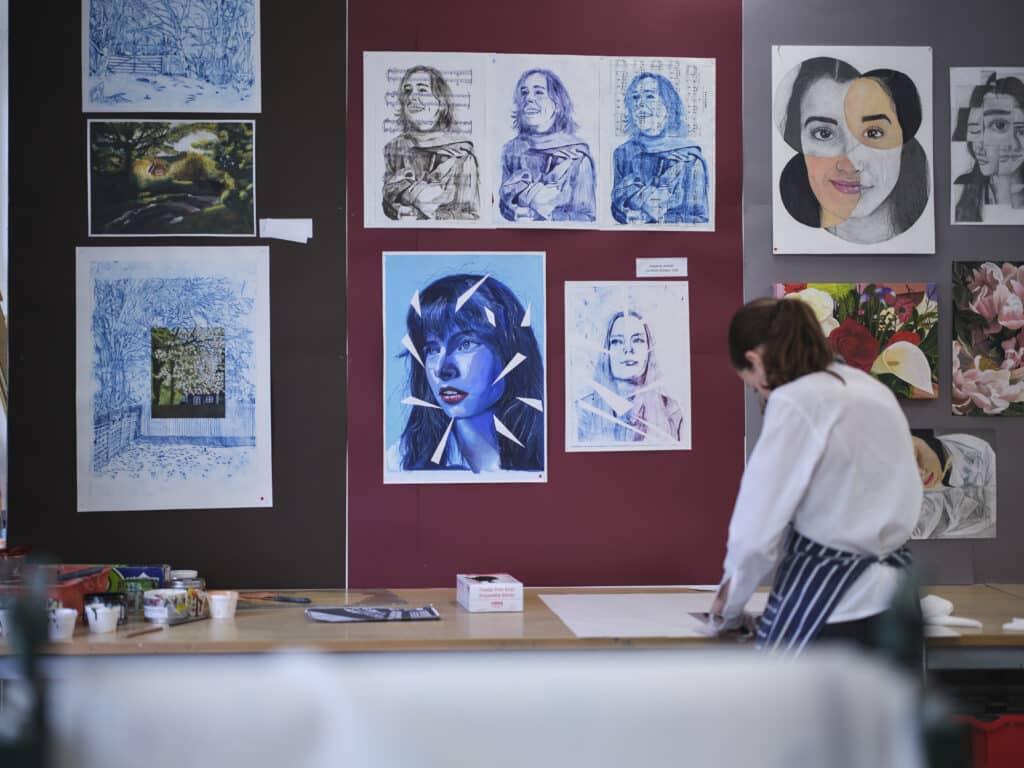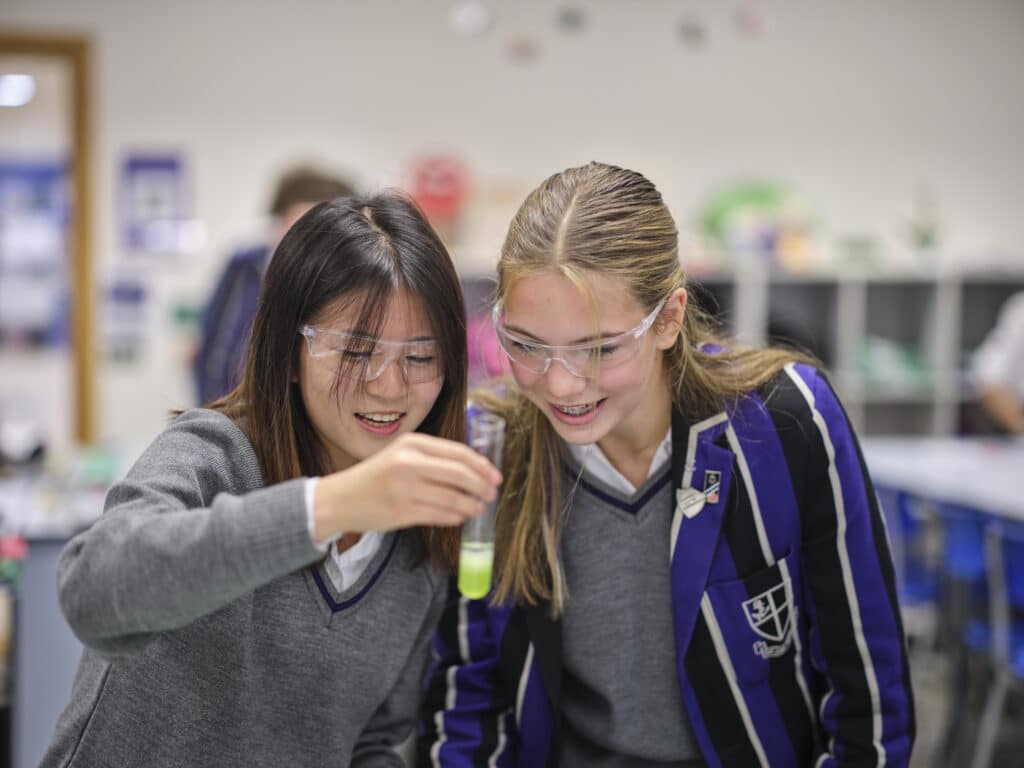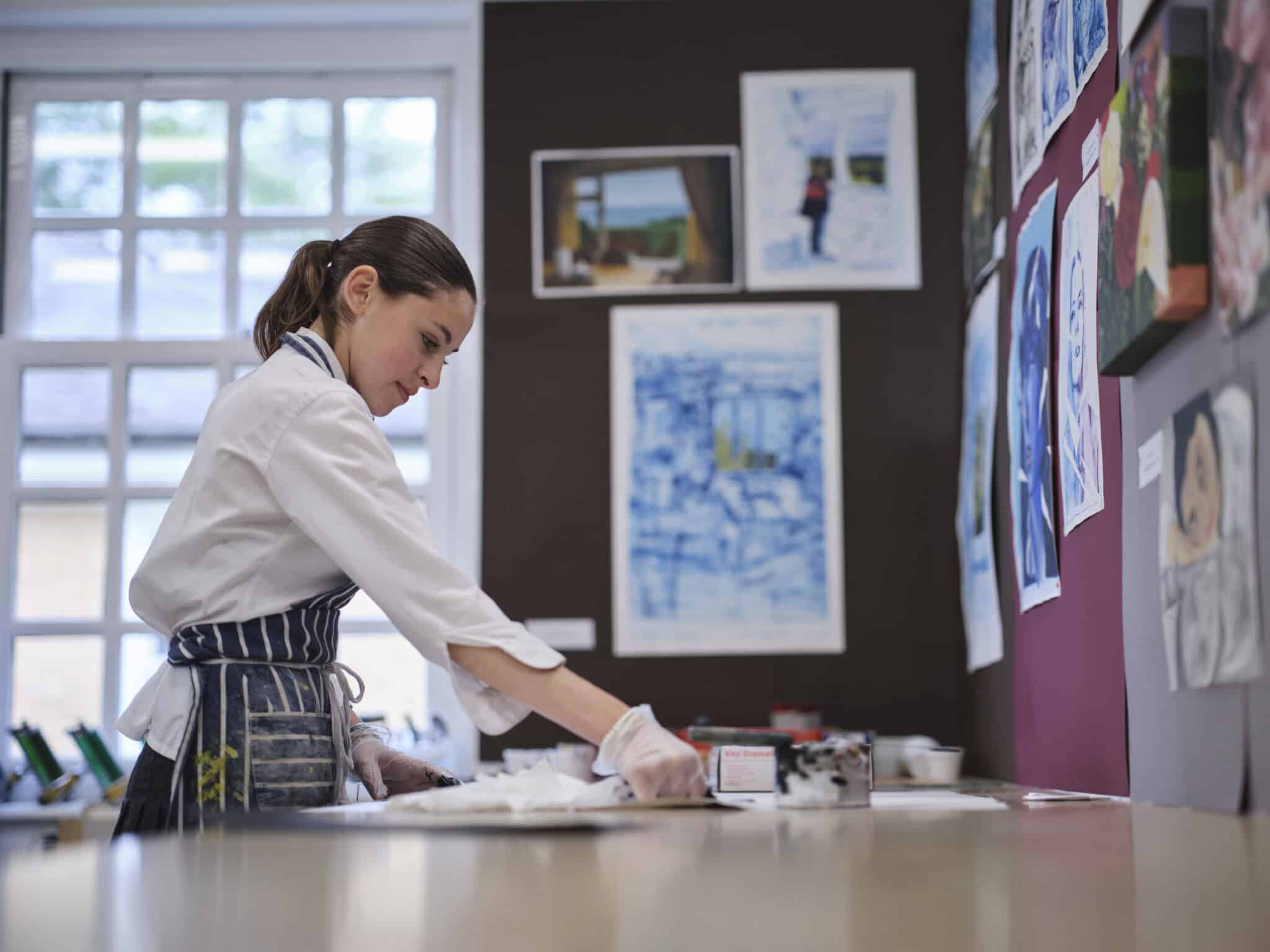
GCSE Art
In this section
- Admission calculator test
- AgentHub
- Art at Kimbolton School
- Biology at Kimbolton School
- Boarding handbook
- Business at Kimbolton School
- Chemistry at Kimbolton School
- Cultural Exchange with Christianeum School, Hamburg, Germany
- Design technology and engineering
- Digital learning and computer science
- Drama at Kimbolton School
- English as an Additional Language (EAL)
- English at Kimbolton School
- Geography at Kimbolton School
- History at Kimbolton School
- Induction pack Pre-School
- Kimbolton Army CCF
- Kimbolton Pre-School (3 – 4)
- Kimbolton Royal Navy CCF
- Languages at Kimbolton School
- Mathematics at Kimbolton School
- Music at Kimbolton School
- Parents’ handbook
- Philosophy, Religion & Ethics (PRE)
- Physical Education
- Physics at Kimbolton School
- Pre-School (3 – 4)
- Prep School parents’ handbook
- Website terms and conditions
- About us
- Celebrating 425 years of educational excellence
- Cookie settings
- Engage forms
- History and English – Autumn 2024
- Induction pack Lower Prep
- Induction pack Senior School – Boarding pupils
- Induction pack Senior School – Day pupils
- Induction pack Upper Prep
- Kimbolton RAF CCF
- LAMDA
- Media gallery
- Site map
- Welcome to Ingrams
- Admissions
- Prep School (3-11)
- Admissions deposit
- Senior School (11-16)
- Welcome to Senior School
- Academic – Senior
- GCSEs
- GCSE Art
- GCSE Biology
- GCSE Computer Science
- GCSE Chemistry
- GCSE Design Technology
- GCSE Drama
- GCSE English (Lang/Lit)
- GCSE Food and Nutrition
- GCSE French
- GCSE Geography
- GCSE History
- GCSE Maths/Further Maths
- GCSE Music
- GCSE Philosophy, Religion & Ethics
- GCSE Physical Education
- GCSE Physics
- GCSE Spanish
- EAL – Senior School
- Academic support – Senior
- Our digital school
- PSHE in Senior School
- Vanbrugh Library
- Queen Katharine Building (QKB)
- Essay writing competition
- GCSEs
- Beyond the classroom in Senior School
- Well-being and pastoral in Senior School
- Careers
- Extended school day
- Sixth Form (16-18)
- Welcome to Sixth Form
- Academic – Sixth Form
- A Levels
- A Level Art (Critical & Contextual studies)
- A Level Art, Design and Photography
- A Level Biology
- A Level Business
- A Level Computer Science
- A Level Chemistry
- A Level Design Technology (Engineering)
- A Level Drama and Theatre
- A Level Economics
- A Level English Language
- A Level English Literature
- A Level French
- A Level Further Mathematics
- A Level Geography
- A Level History
- A Level Mathematics
- A Level Music
- A Level Philosophy, Religion & Ethics
- A Level Physical Education
- A Level Physics
- A Level Politics
- A Level Psychology
- A Level Spanish
- EAL – Sixth Form
- Super Curriculum
- Digital Sixth Form
- Extended Project Qualification
- Academic support in Sixth Form
- A Levels
- Beyond the classroom in Sixth Form
- Well-being and pastoral in Sixth Form
- Careers Sixth Form
- Boarding
- News
- Current families
- Academic staff list
- Co-curricular programme
- Office contacts and absence reporting
- Calendar
- Dining and menus
- Exams (GCSE / A Level)
- Careers resources
- Kim Club
- Duke of Edinburgh’s Award information
- Kimbolton School Parents’ Association
- Health Centre
- Online safety
- School shop
- Sports fixtures
- Summer sports week
- Uniform – current families
- School day
- Residential trips (Senior/Sixth)
- Senior School newsletter
- Senior School newsletter – 12 September 2025
- Senior School newsletter – 26 September 2025
- Senior School newsletter – 10 October 2025
- Senior School newsletter – 7 November 2025
- Senior School newsletter – 21 November 2025
- Senior School newsletter – 5 December 2025
- Senior School newsletter – 16 January 2026
- Senior School newsletter – 30 January 2026
- PSHE curriculum (senior)
- Wellbeing Hub
- Staff & pupils
- Alumni
- Sports & venue hire
- Support us
- Hidden
- Admission calculator test
- AgentHub
- Art at Kimbolton School
- Biology at Kimbolton School
- Boarding handbook
- Business at Kimbolton School
- Chemistry at Kimbolton School
- Cultural Exchange with Christianeum School, Hamburg, Germany
- Design technology and engineering
- Digital learning and computer science
- Drama at Kimbolton School
- English as an Additional Language (EAL)
- English at Kimbolton School
- Geography at Kimbolton School
- History at Kimbolton School
- Induction pack Pre-School
- Kimbolton Army CCF
- Kimbolton Pre-School (3 – 4)
- Kimbolton Royal Navy CCF
- Languages at Kimbolton School
- Mathematics at Kimbolton School
- Music at Kimbolton School
- Parents’ handbook
- Philosophy, Religion & Ethics (PRE)
- Physical Education
- Physics at Kimbolton School
- Pre-School (3 – 4)
- Prep School parents’ handbook
- Website terms and conditions
- About us
- Celebrating 425 years of educational excellence
- Cookie settings
- Engage forms
- History and English – Autumn 2024
- Induction pack Lower Prep
- Induction pack Senior School – Boarding pupils
- Induction pack Senior School – Day pupils
- Induction pack Upper Prep
- Kimbolton RAF CCF
- LAMDA
- Media gallery
- Site map
- Welcome to Ingrams
- Admissions
- Prep School (3-11)
- Admissions deposit
- Senior School (11-16)
- Welcome to Senior School
- Academic – Senior
- GCSEs
- GCSE Art
- GCSE Biology
- GCSE Computer Science
- GCSE Chemistry
- GCSE Design Technology
- GCSE Drama
- GCSE English (Lang/Lit)
- GCSE Food and Nutrition
- GCSE French
- GCSE Geography
- GCSE History
- GCSE Maths/Further Maths
- GCSE Music
- GCSE Philosophy, Religion & Ethics
- GCSE Physical Education
- GCSE Physics
- GCSE Spanish
- EAL – Senior School
- Academic support – Senior
- Our digital school
- PSHE in Senior School
- Vanbrugh Library
- Queen Katharine Building (QKB)
- Essay writing competition
- GCSEs
- Beyond the classroom in Senior School
- Well-being and pastoral in Senior School
- Careers
- Extended school day
- Sixth Form (16-18)
- Welcome to Sixth Form
- Academic – Sixth Form
- A Levels
- A Level Art (Critical & Contextual studies)
- A Level Art, Design and Photography
- A Level Biology
- A Level Business
- A Level Computer Science
- A Level Chemistry
- A Level Design Technology (Engineering)
- A Level Drama and Theatre
- A Level Economics
- A Level English Language
- A Level English Literature
- A Level French
- A Level Further Mathematics
- A Level Geography
- A Level History
- A Level Mathematics
- A Level Music
- A Level Philosophy, Religion & Ethics
- A Level Physical Education
- A Level Physics
- A Level Politics
- A Level Psychology
- A Level Spanish
- EAL – Sixth Form
- Super Curriculum
- Digital Sixth Form
- Extended Project Qualification
- Academic support in Sixth Form
- A Levels
- Beyond the classroom in Sixth Form
- Well-being and pastoral in Sixth Form
- Careers Sixth Form
- Boarding
- News
- Current families
- Academic staff list
- Co-curricular programme
- Office contacts and absence reporting
- Calendar
- Dining and menus
- Exams (GCSE / A Level)
- Careers resources
- Kim Club
- Duke of Edinburgh’s Award information
- Kimbolton School Parents’ Association
- Health Centre
- Online safety
- School shop
- Sports fixtures
- Summer sports week
- Uniform – current families
- School day
- Residential trips (Senior/Sixth)
- Senior School newsletter
- Senior School newsletter – 12 September 2025
- Senior School newsletter – 26 September 2025
- Senior School newsletter – 10 October 2025
- Senior School newsletter – 7 November 2025
- Senior School newsletter – 21 November 2025
- Senior School newsletter – 5 December 2025
- Senior School newsletter – 16 January 2026
- Senior School newsletter – 30 January 2026
- PSHE curriculum (senior)
- Wellbeing Hub
- Staff & pupils
- Alumni
- Sports & venue hire
- Support us
- Hidden
GCSE Art at Kimbolton
At Kimbolton we are fortunate to have four well-equipped art studios, with a kiln, an AO size etching press, and a photography and PC suite.
This allows all our GCSE pupils to work across disciplines as diverse as ceramics, printmaking, painting and photography.

About the course
The GCSE course is designed to inspire, challenge and motivate. You will initially explore a variety of media, techniques, and starting points such as still life, portraiture, and landscape. You will be encouraged to develop your knowledge and understanding of art history through written analysis and copying artists’ pieces. The next step is to explore, create and communicate your own ideas within your own art works; these smaller projects will form your first piece of coursework.
Assessment
During the Spring term of the Fourth Form, you will begin to work on a second major coursework project. Individuality and independence are called for at this point, as you should now be driving your own learning. A good quality project will consist of several sketchbooks of preparation work and experimentation, as well as a large final piece of artwork, completed by December of the Fifth Form.
The Externally Assessed Assignment is started in mid-January. You will rise to the challenge of creating an original outcome from one of the six stimuli provided. This project culminates in a 10-hour practical exam, taken in May.
- 60% coursework portfolio
- 40% externally set assignment
Beyond the classroom
- Art department open on Saturday mornings for extended independent work
- ‘Raise a Grade’ sessions after school and near to deadlines
- After school clubs including: Open Art, Set Design club and Ceramics club.
- Competitions: Cambridgeshire Young Artists Competition and The Royal Academy Summer Show
“The creative industries employ over 2 million people in the UK and are projected to create an additional one million jobs by 2030.”
Creative Industries Federation
You will enjoy Art if you…
- You have a passion or talent for Art, Design, Textiles, Graphics Photography, Sculpture or a general creative interest and are wanting to developing your skills.
- You are interested in understanding more about the techniques you can use and experimenting with the equipment and technology we have.
- Even at this early stage it maybe you are beginning to think that a creative career might be for you.
Skills you will develop…..
- Improved drawing and compositional skills
- More understanding of artists and art history.
- Creative thinking and problem solving.
“Art gives you the opportunity for independent thinking and creativity and gives you a chance to do something completely different to your other subjects. Art also helps me to express my thoughts and feelings in a way that I can’t in my other lessons.”
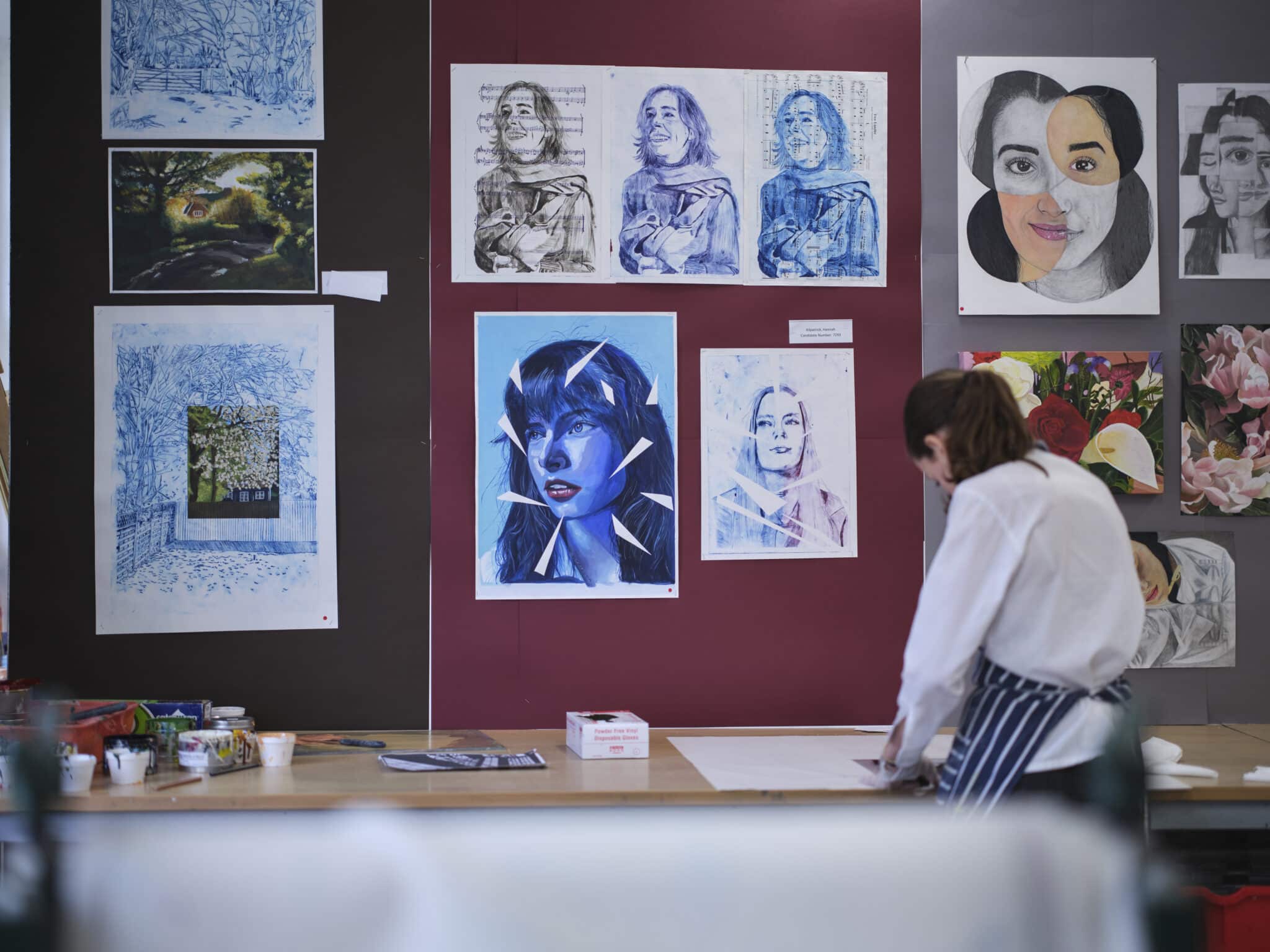
Sophie
Art student
